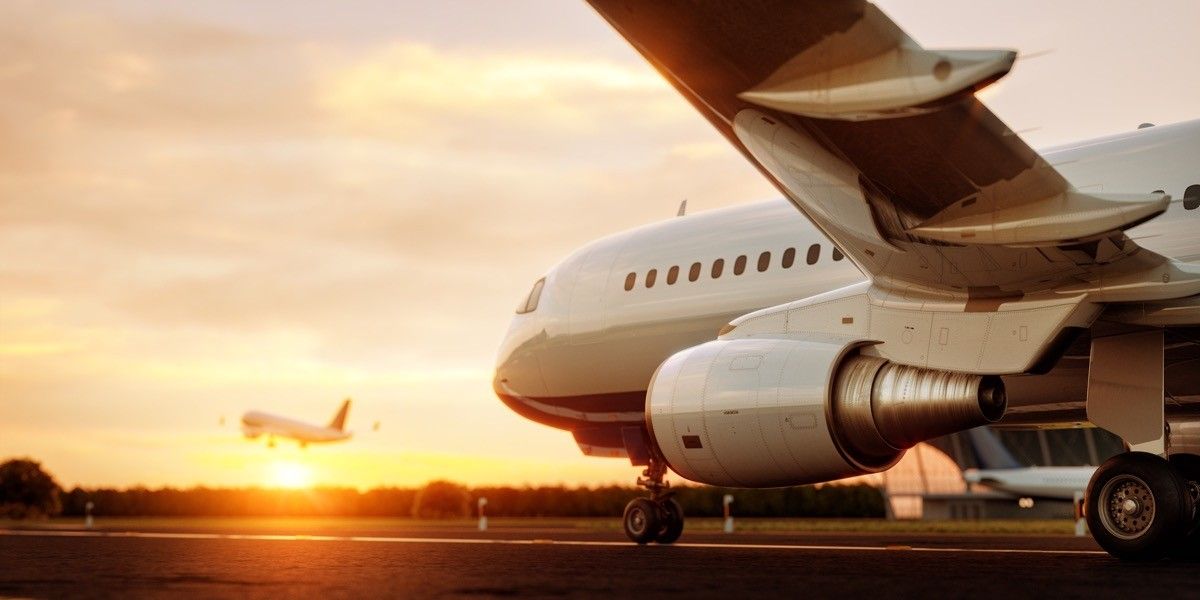17 Genius Flight-Booking Hacks That Will Save You Hundreds on Airfare
Don’t purchase a plane ticket without trying these expert methods!

While it's true that airfare can be insanely expensive, the good news is, it doesn't have to be. Finding the best deals is an art form and does take quite a bit of research, but once you're properly armed with the right tools, anyone can learn to book cheap flights. If you're looking to save on your next trip, consider these 17 tips and tricks to finding the best prices out there. Happy trails!
1
Sign up for fare alerts.
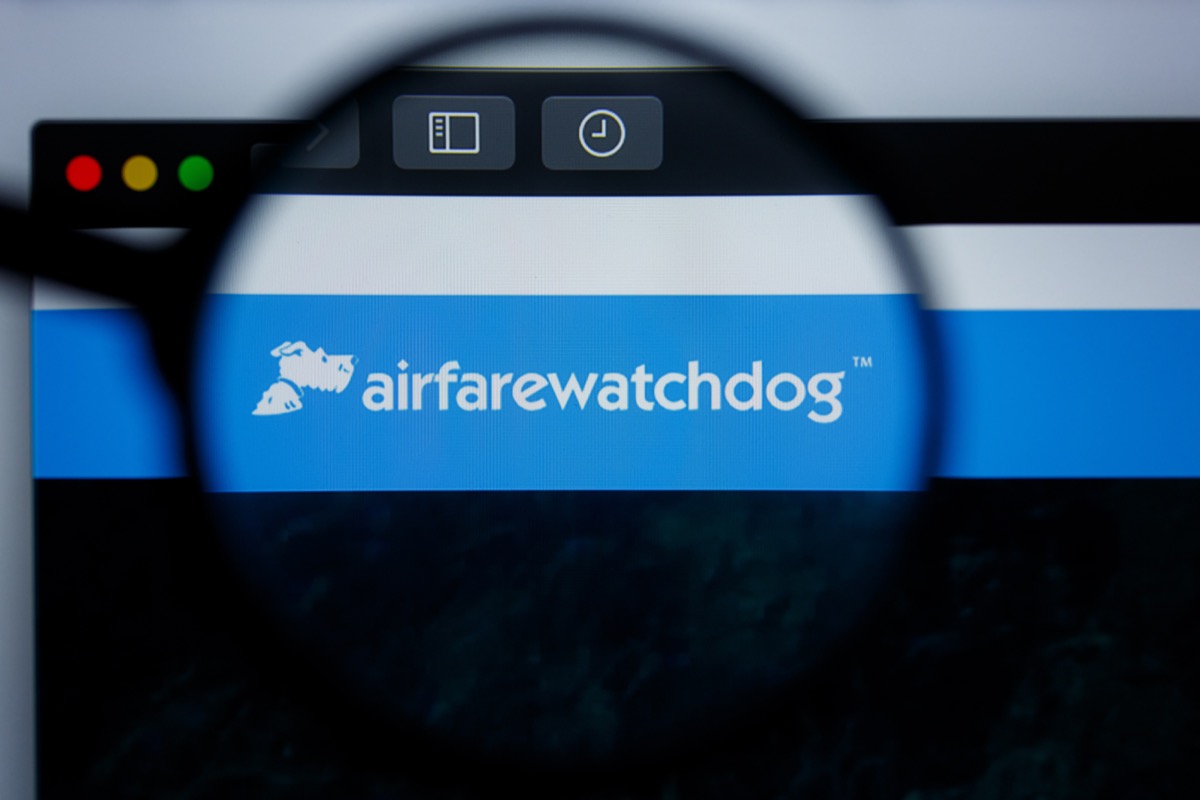
Rather than do all the heavy lifting yourself, there are a number of websites, email listservs, apps, and even Twitter accounts dedicated to sharing great flight deals. Some, like Scott's Cheap Flights, require a paid subscription, while others, like Airfarewatchdog and Secret Flying, are totally free. This is the best way to snag an error fare, which is when some sort of technical glitch causes flight prices to drop drastically—just beware that an airline might not honor an error fare, and it could cancel your ticket.
2
Check prices on an international version of your airline's website.
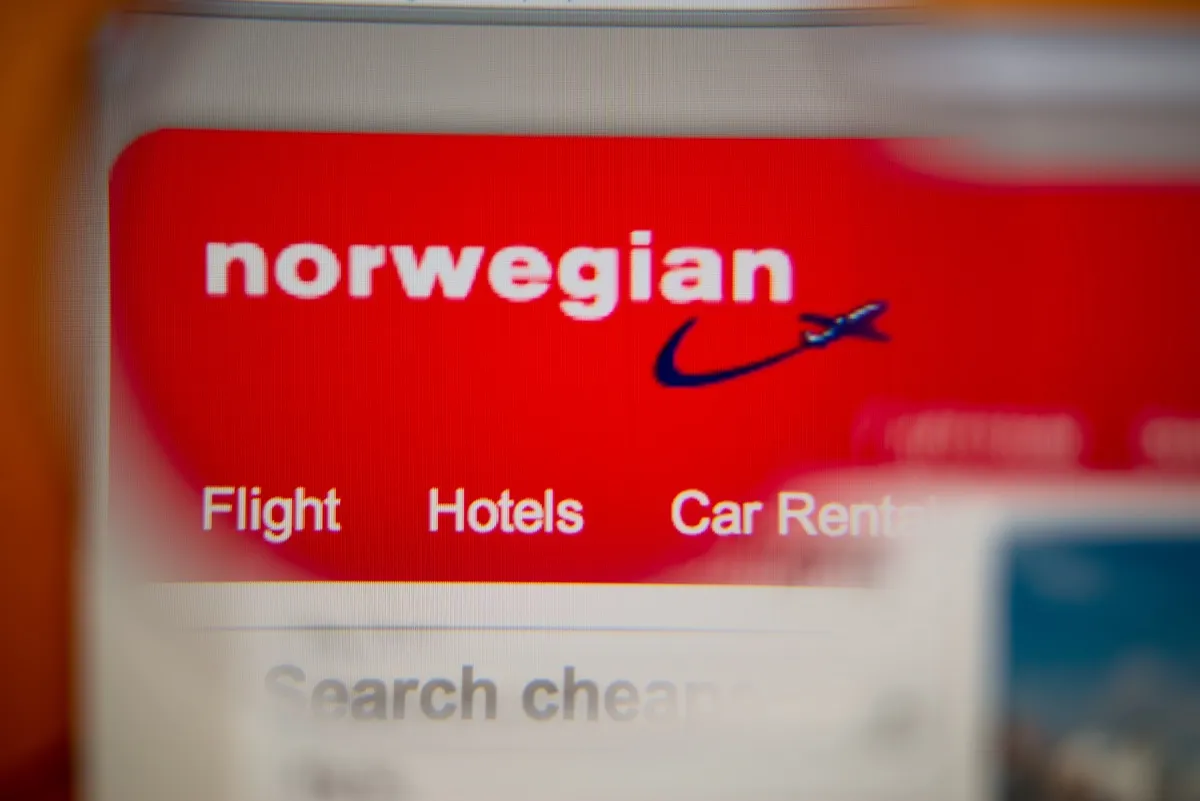
Thanks to IP addresses, your computer typically knows where in the world you're located, and therefore airline websites will likely also know—they'll use this info to automatically direct you to your country's version of their site. But sometimes you can find better deals on the international versions of their site. For example, you can often find cheaper prices if you search Norwegian Air's Norwegian website rather than its American one—you'll just have to employ a translation tool and a currency converter to figure out if you've discovered a deal. In order to switch websites, you can either manually change your location on the website itself, or you can use a virtual private network, or VPN, to trick your computer into thinking it's elsewhere in the world.
3
Book an open-jaw ticket.
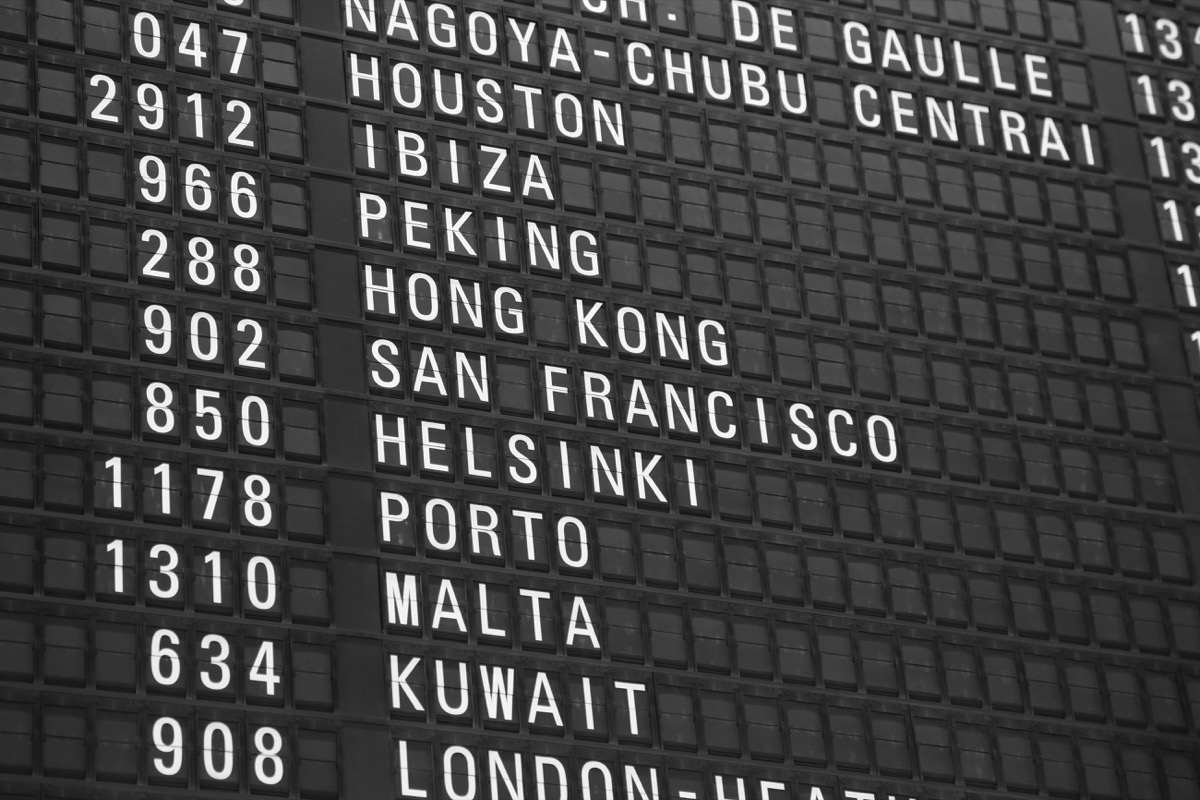
The simplest way to explain an open-jaw ticket is by example. Say you're flying out of Destination A to Destination B. Instead of booking round-trip tickets between the two destinations, you might want to investigate booking flights from Destination A to Destination B, then back from Destination C to Destination A—this is called an open-jaw ticket, and flights can sometimes be far cheaper. There are multiple variations of this technique, like booking flights from A to B, then B to C, or even booking flights from A to B, then C to D. Essentially, you should play with multi-city flight options in order to score the lowest price on airfare.
4
Transfer credit card points to airline loyalty programs.
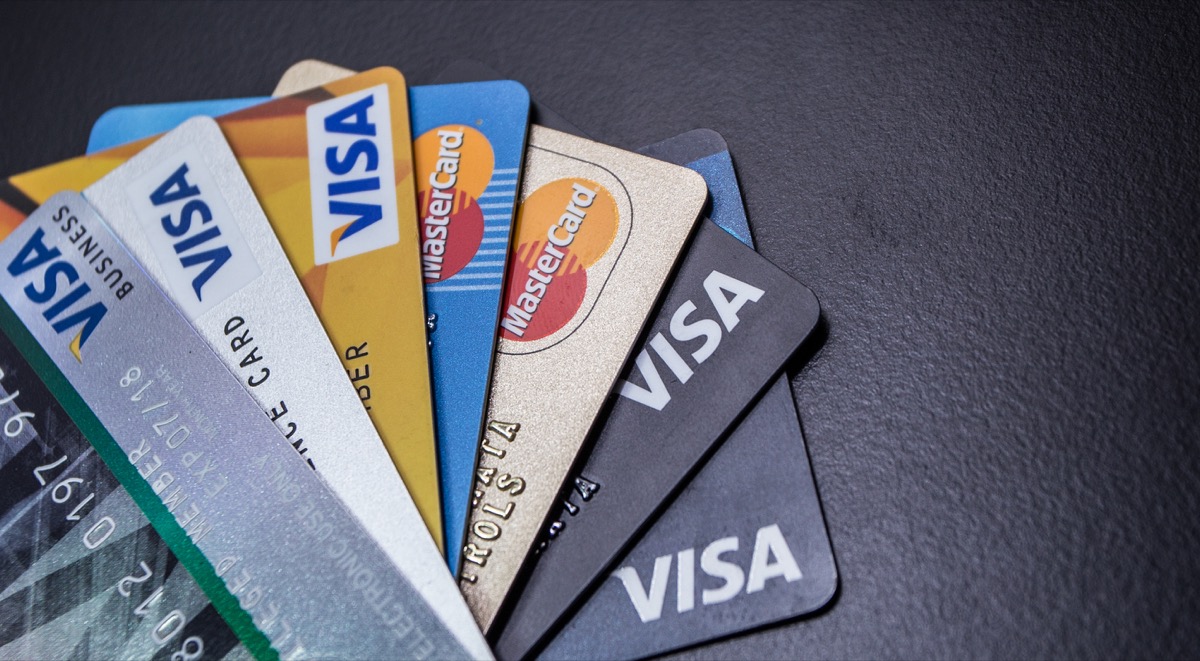
If you're not already signed up for a credit card that offers reward points that are redeemable for travel, get to a bank pronto. For many cards, every dollar you spend earns you points, which can then be used for booking flights.
The real trick to this is learning how to best redeem your points. While most cards have their own travel portals for booking flights, you can usually transfer your points over to an airline and convert them into award miles. Here's where things get a little tricky—some transfers are not 1:1, and you can actually squeeze even more value out of each point, depending on which airline you're transferring to. Then there's the matter of picking an airline rewards program with the best redemption rate.
For instance, if you want to fly Delta, you can transfer your credit card points into Delta's SkyMiles program, or you can transfer to one of Delta's SkyTeam partners, like Virgin Atlantic's Flying Club. Now, through Delta SkyMiles, say the "price" of a given Delta-operated flight might be 48,000 miles, whereas the same exact Delta-operated flight could be booked through Virgin's Flying Club for just 40,000 miles. Obviously, this method is for die-hards who are willing to dive into the points game—it's not for everyone. But once you master the math, you could end up getting hundreds, if not thousands of dollars worth of free flights.
5
See if your airline has a bidding program for upgrades.

While you can almost always pay to upgrade your ticket to business or first class (unless you book basic economy, which is a whole other story), did you know some airlines actually auction off upgrades to the highest bidder? If you're on one such airline, you can enter your maximum bid online, over the phone, or in-person to an agent at the airport. Now, you won't get away with bidding just $1—there are usually minimums set. That said, you could still score an upgrade for just a few hundred dollars compared to a few thousand dollars.
6
Book within the "Goldilocks" window—not too soon, not too late.

When it comes to booking airfare, it's not all about who nabs a ticket first. In fact, if you book too early, you might end up paying more than if you wait. According to CheapAir, the ideal window to book a flight at the cheapest price is between 115 and 21 days before your flight. Book before that, and you might miss out on a price drop. Book after that, and you're running the risk of a massive price jump. To help with this booking tip, you can also download an app like Hopper, which predicts whether or not the price you see will stay put, plummet, or rise.
7
Check your flight's airfare history.
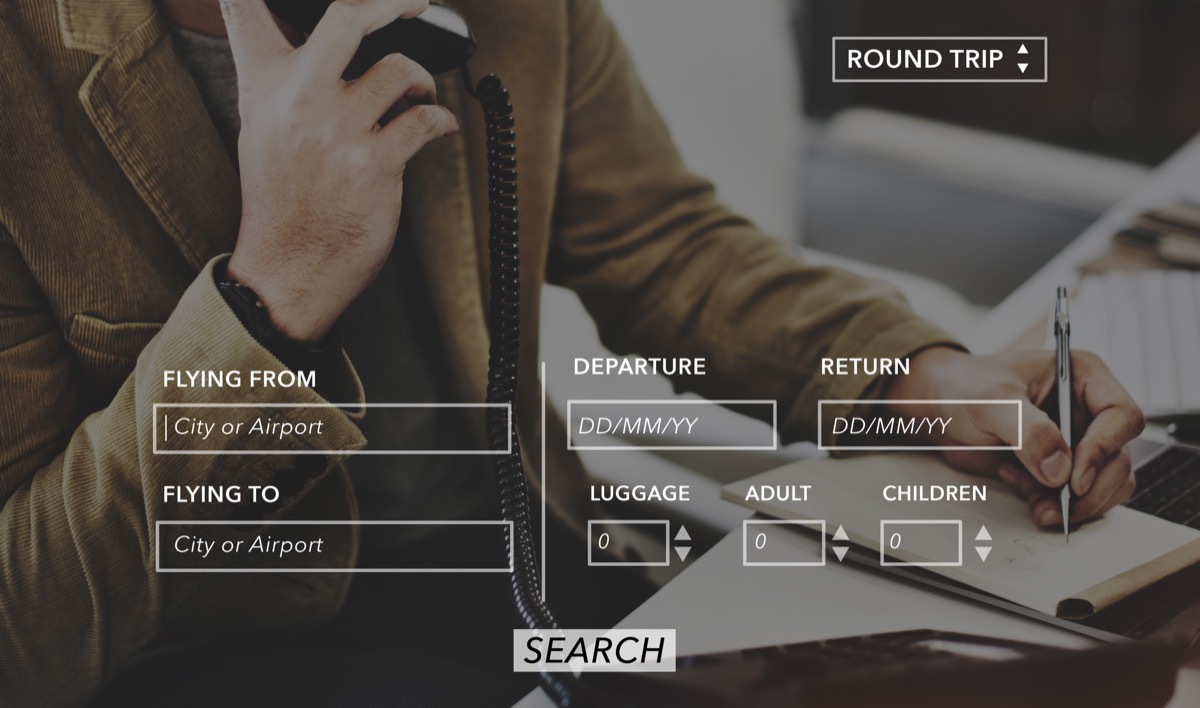
Before you take the plunge and book a ticket, survey the historical data regarding the price of your flight, so you can gain some insight into past fluctuations. Check out the website Faredetective, which shows average flight prices between any two destinations over the last year.
8
Clear your cache.
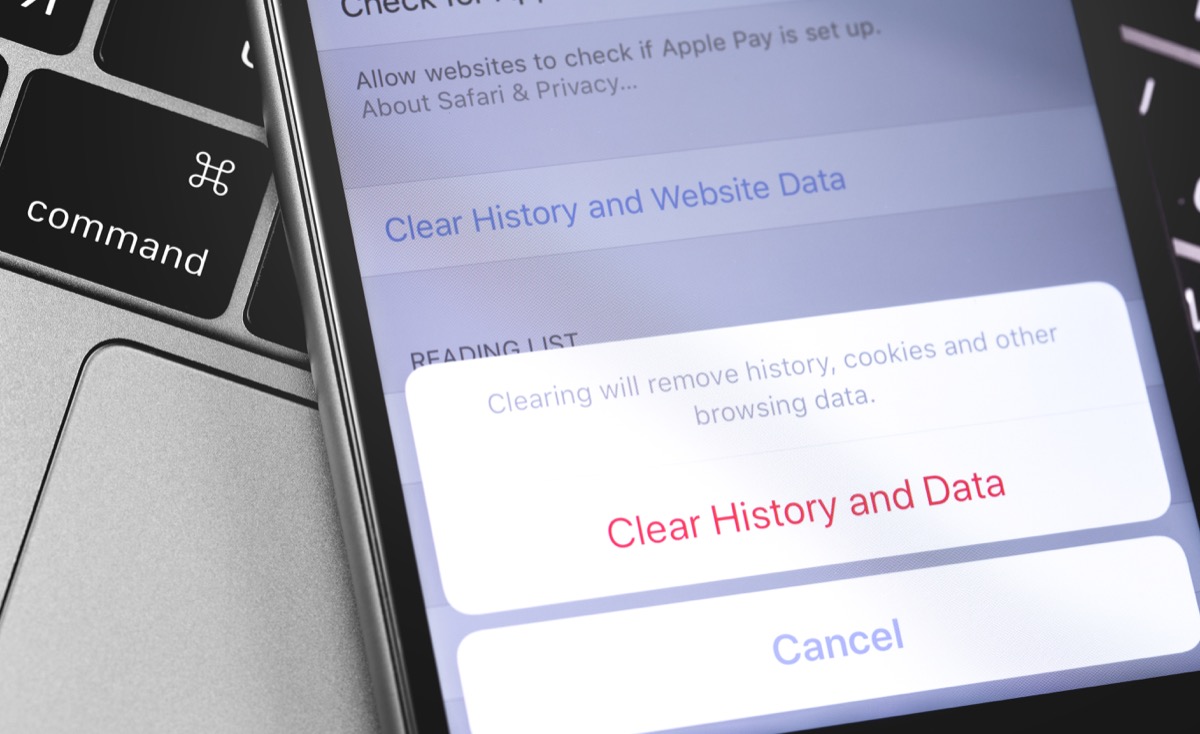
Some travelers swear that clearing your cache, deleting your cookies, or going incognito on your Internet browser can trick flight search engines into spitting out lower prices. The idea is this: Airline websites are tracking your searches through cookies, and they'll inch up the price each day to convince you to book sooner than later, as you'll fear that a big price jump is looming. But, according to cache conspiracy theorists, the actual price of the ticket may be much lower. So if you delete your cookies, you'll see the "true" price of the ticket. Of course, airlines and travel agents all deny that this happens and that all price fluctuations are simply related to dynamic pricing. But it can't really hurt to search incognito, so you might as well give it a go.
9
Check prices for all nearby airports.

Many major cities have more than one airport, and you'd be doing your wallet a disservice by limiting your search to just one of them. When you're inputting both origins and destinations on a flight search engine, be sure to check the box that says "nearby airports," or use a generic search term like "NYC" rather than "JFK" in order to see all your options. You never know if one of the smaller airports might have a better deal!
You can even take this one step further by searching an entire region rather than just one city. For instance, if you're trying to fly to Philadelphia, you might find substantially cheaper flights to New York, which is only a two-hour bus or train ride from the city. Or, in a more extreme example, flights to Paris might be hundreds of dollars cheaper than flights to your end destination, say Vienna—book that cheaper long-haul flight, then hop on a super-affordable inter-Europe flight to get there.
Pro tip: On Google Flights, input your travel dates and your origin, but leave your destination blank when you search. Your results will pop up on a world map, and you can see which cities have the cheapest airfare. Skyscanner has a similar function, where you can input your destination as "Everywhere" to find the cheapest flights for a given date.
10
Reposition yourself before flying internationally.
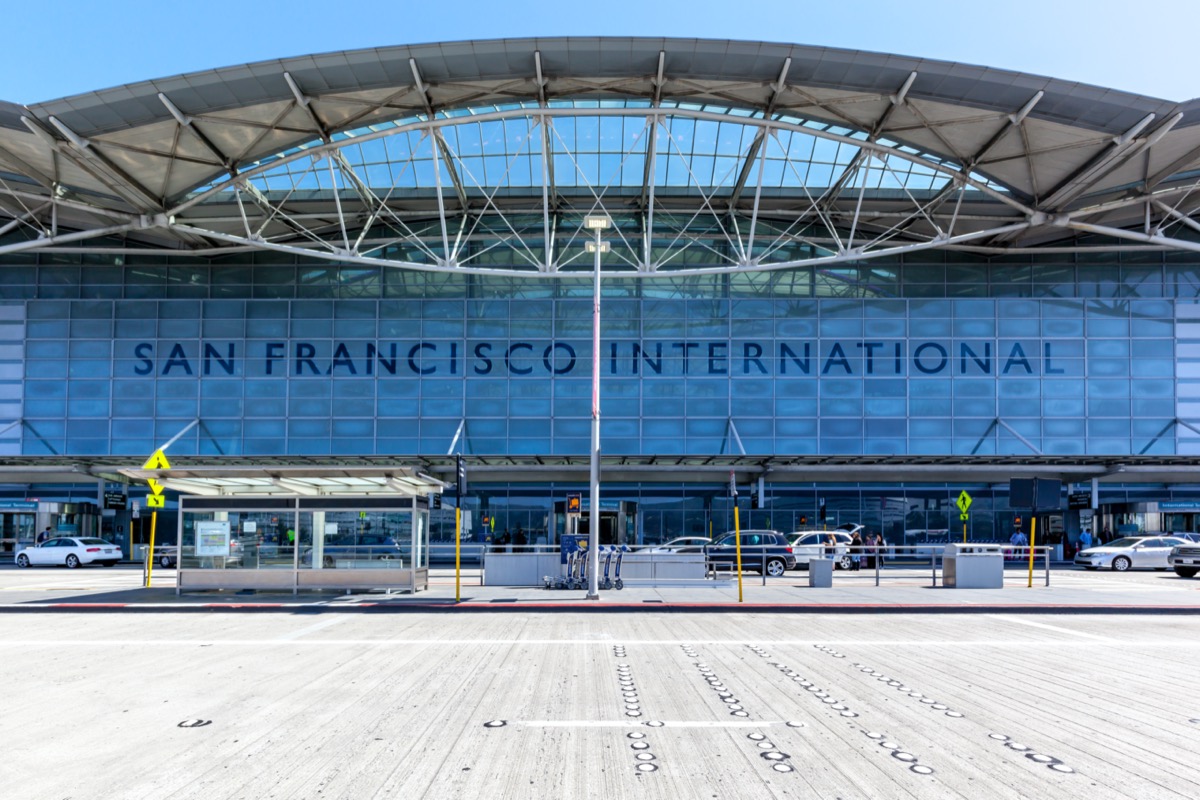
Some cities have all the luck when it comes to cheap international airfare—you're much more likely to score incredibly cheap flights from cities like New York, Chicago, or San Francisco than say, Tulsa, Oklahoma. If you do live in a smaller city, and international airfare is outrageously expensive from your home, consider booking a cheap domestic round-trip flight to one of the bigger cities, then a separate international round-trip flight to your end destination. For instance, a round-trip flight from Tulsa to Tokyo might cost $2,000 on a single ticket, but you may be able to book a $200 round-trip flight from Tulsa to San Francisco, then a $600 round-trip flight from San Francisco to Beijing. You'd end up saving $1,200!
There is, however, a major risk in attempting this method—if your domestic flight gets delayed and you miss your international one, the airlines are not obligated to help you in any way, so you're on the hook for booking a new flight yourself. If you do book two separate flights, be sure to leave as much layover time as humanly possible. In our opinion, you should make the stopover part of your trip, and spend a night or two on the ground in between flights, just in case. (Think of it as a way to explore another destination!)
11
Gamble with skiplagging.
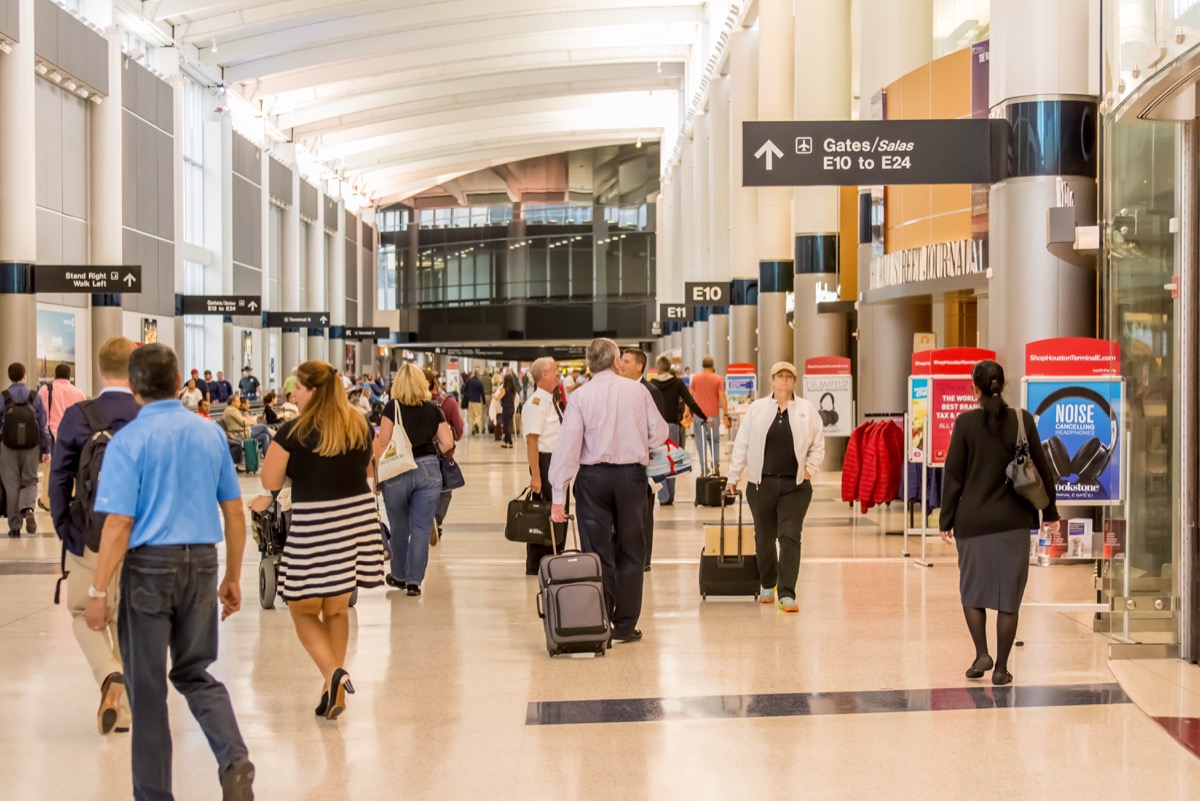
In a nutshell, skiplagging is booking a flight with a layover, then staying put in your layover city rather than continuing onto the final destination on your ticket. Why do this? Well, sometimes a flight from Washington, D.C., to Las Vegas with a layover in Houston is far cheaper than a flight from D.C. to Houston directly. The biggest issue with intentionally skiplagging is that it's technically against the terms of service for many airlines—in fact, United and Lufthansa have (unsuccessfully, for what it's worth) sued passengers for it. So while we don't recommend skiplagging due to its shady side, it does work for some travelers who don't mind bending the rules and keeping extremely hush hush about it.
12
Check a variety of search engines.

While we adamantly suggest booking directly with an airline—it gives you the most control over your flights and the most help if anything were to go wrong—you can sometimes find good deals on online travel agencies (OTAs) like Expedia or Momondo. So when searching for airfare, check a variety of sites in order to ensure you're getting the best deal. Just keep in mind that not all will list prices for budget airlines (such as Southwest or Frontier) so you might have to check their websites directly. Our favorite search engine for airfare is Google Flights for its user-friendliness and comprehensive listings, but if you're good with tech, we also recommend ITA Matrix, which is Google's advanced software that was originally developed by MIT grads.
13
Book one-way tickets rather than round-trip.
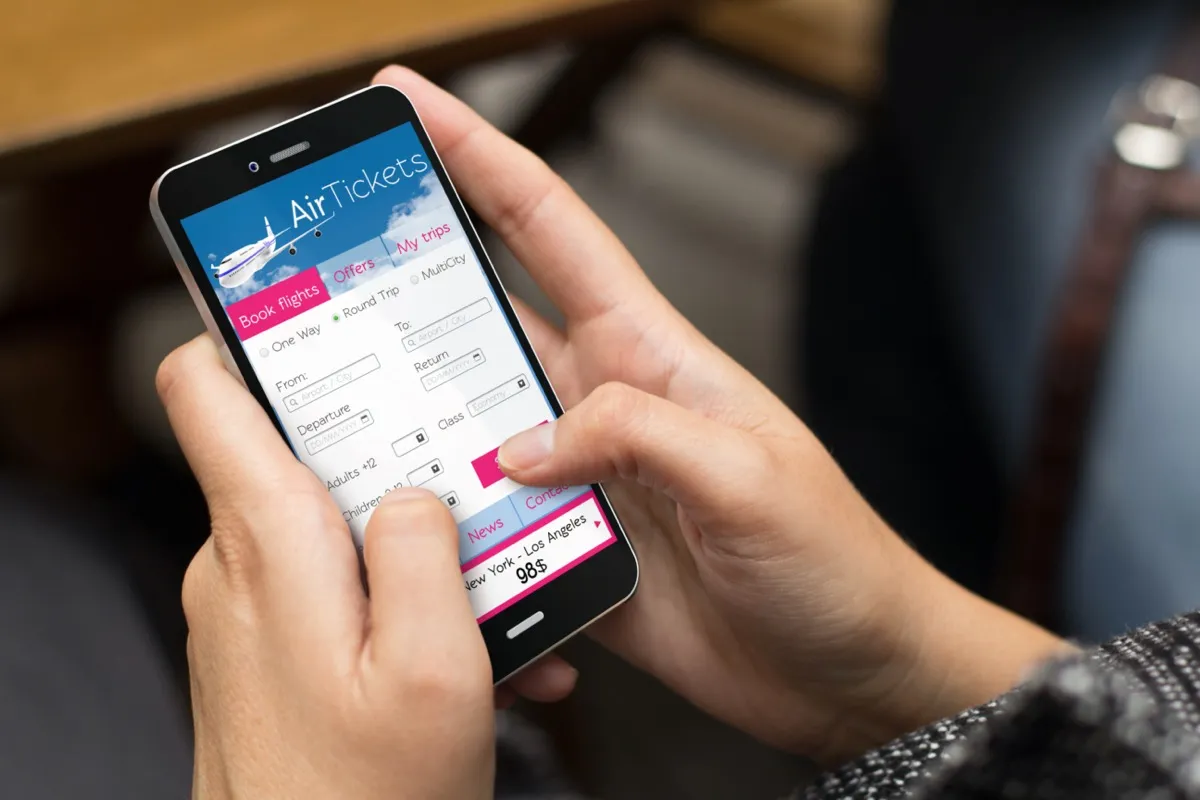
Occasionally two one-way tickets might be cheaper than a round-trip one, so it's worth searching for individual flights in each direction, just in case. While you can check for one-way flights on the same airline, you also might want to consider looking at multiple airlines. Third-party search engines like Kayak or Skyscanner can often do this for you, offering up some sort of "hacker" fare where flights will be on one airline for the outbound leg, then another airline on the inbound leg.
14
Be loyal to one alliance to earn frequent flyer status.
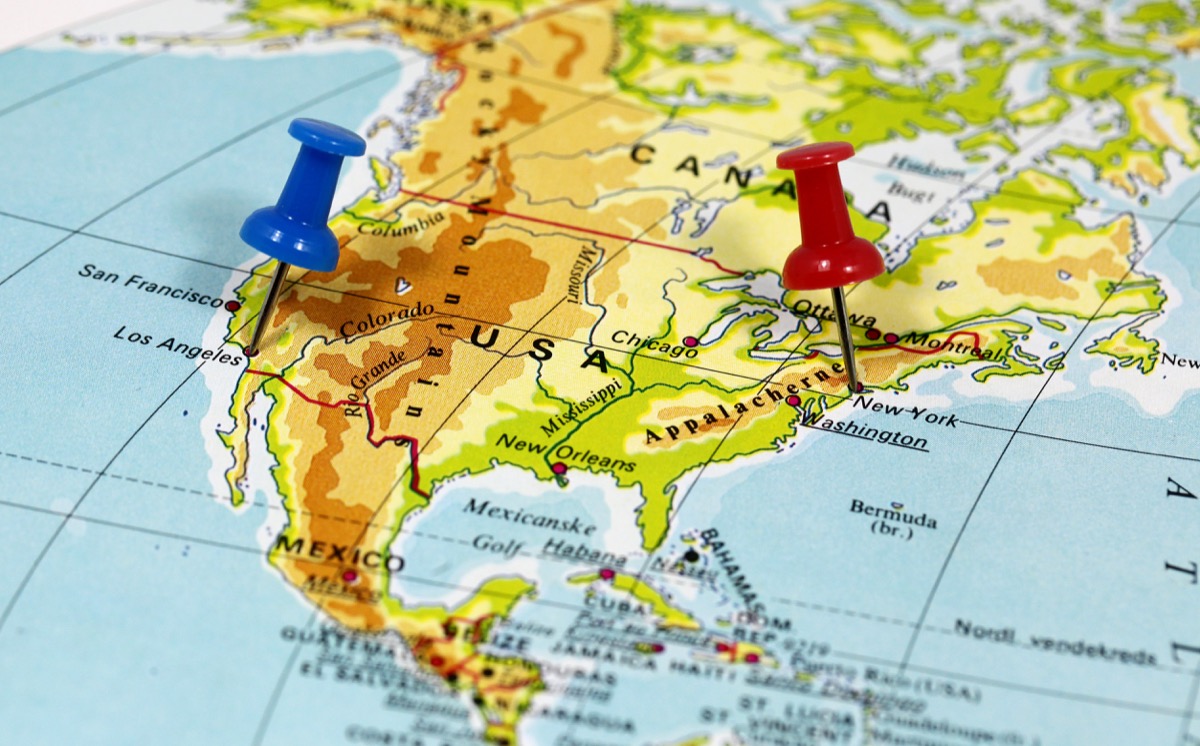
You don't need to fly as often as George Clooney in Up in the Air in order to get entry-level airline status—typically you just need to fly around 25,000 miles and spend about $3,000 in a calendar year. For context, that's roughly five round-trip flights from New York to Los Angeles. (Another way to look at it: one round-trip flight between Newark and Singapore, which is the world's longest flight, is about 19,000 miles. Book one of those, and you're almost there!)
Frequent flyer status is the best way to get upgraded to first or business class, not to mention free checked bags, lounge access, and booze onboard, among other perks. Those all add up to a lot of money saved if you travel somewhat regularly!
15
Ask for a student discount.

An oft-overlooked deal, some airlines and travel agencies offer discounts to currently-enrolled students. Who knew?! And these deals can be insanely good—some travelers report getting up to 30 percent off! Just note that sometimes there's an age restriction, so Ph.D. candidates and lifelong learners might be out of luck.
16
Check prices for varying dates.

If you have flexibility on the dates of your trip, there's a solid chance you'll be able to save some money when it comes to booking a flight. It's almost always better to fly midweek rather than on weekends. According to a study by airfare website CheapAir, departures on Tuesdays and Wednesdays are typically the most affordable, while Fridays and Sundays are the most expensive. As for the cheapest day to book a flight? Well, that whole thing is sort of a myth. According to Skyscanner, domestic flights cost an average of just $4 more on the most expensive day (Monday) as compared to the cheapest day (Saturday). International flights, however, have a price difference of $17 between the most expensive day (also Monday) and the cheapest day (also Saturday). Still, there are better ways to save than booking on a specific day of the week—like flying midweek instead of weekends.
17
Use your 24-hour cancellation window to your advantage.

Almost every airline in the world offers a free 24-hour cancellation policy, meaning that you can cancel a flight within 24 hours of booking, as long as that flight is more than a week away. After you hit that book button, keep checking the fare for the next day—if you find a cheaper deal, snag it right away and cancel your original ticket.
And for more plane pitfalls you should avoid, read these 17 Terrible Mistakes You're Making When Booking Flights Online.


